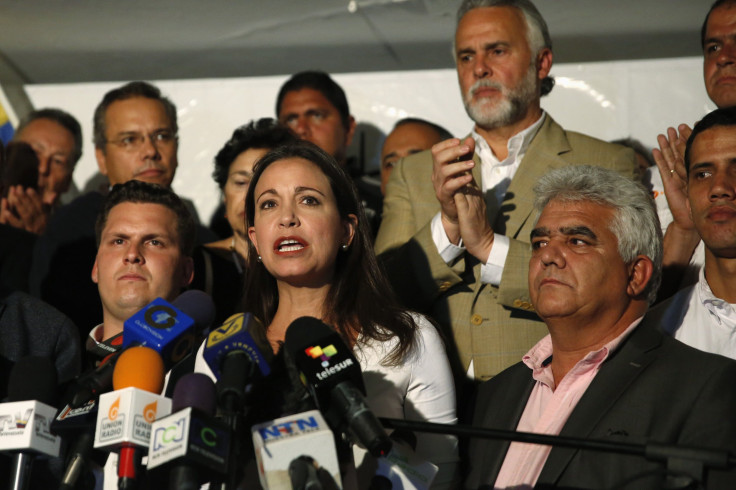
El Universal reported on Tuesday that Panama’s ambassador to the Organization of American States (OAS) said he would cede his seat on the organization’s committee to María Corina Machado, a conservative lawmaker in the Venezuelan National Assembly and longtime Chavista foe, so that Machado could discuss recent opposition protests with ambassadors from other states during a summit on Wednesday. It appeared on Wednesday that Machado had taken up Panama’s offer, writing in a Twitter post that she was leaving Venezuela to take advantage of the “brave and supportive” gesture.
Meanwhile, allies of President Nicolás Maduro in the Venezuelan assembly voted in favor of submitting a request to the attorney general’s office to have Machado formally charged with a host of crimes related to her involvement with opposition protests in February and March which have so far left 28 people dead. National Assembly president Diosdado Cabello, who heads the Socialist party majority in the chamber, said he had petitioned for “an immediate, appropriately rapid investigation” against Machado “for the crimes of instigation to criminal acts, treason to the country, terrorism, homicide, and calls to violence in an irresponsible way.”
“She can go to the OAS court, she can go to the kingdom of heaven,” said Cabello. “But here in Venezuela, she is going to be tried as a murderer, a terrorist; she is going to be tried for crimes against humanity, for conspiracy, for destabilization of this country.”
Machado responded to the request by accusing Maduro’s government of obeying an order from the Cuban government. “I’m very clear on where this order to attack me is coming from: that order comes from Havana, Cuba,” she said at a press conference. “If they thought that they were going to make us bow down with this, we’re unbeatable now … Let them know that at this hour, we’re more united, more firm.”
The Guardian notes that Machado, an industrial engineer from the Caracas business elite who was elected to the National Assembly in 2010, first gained prominence in 2003 as the co-founder of Súmate, a non-profit group dedicated to collecting signatures for a failed 2004 recall referendum on the presidency of Hugo Chávez. A year before that, she’d signed the Carmona Decree -- a document created by coup leaders which asserted the illegitimacy of Chávez’s government after briefly deposing the late president in 2002 -- although she denies having been aware of what she was signing at the time. She has become an increasingly popular target of Chavista attacks as opposition protests flared in past months.
© 2025 Latin Times. All rights reserved. Do not reproduce without permission.





